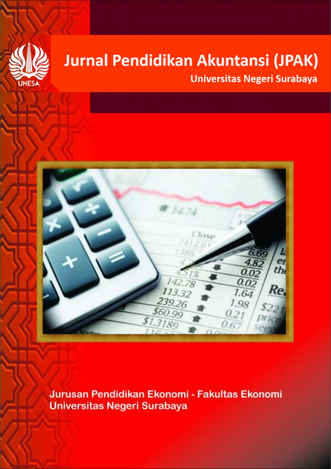Penerapan Model Pembelajaran Problem Based Learning Berbantuan Buku Ajar Dalam Meningkatkan Hasil Belajar Akuntansi Perbankan Syariah
DOI:
https://doi.org/10.26740/jpak.v9n2.p168-177Keywords:
Learning model; textbooks; problem based learning; islamic banking accountingAbstract
Efforts that can be made to improve learning outcomes are to use learning models that can be considered suitable for improving learning outcomes, one of the most widely used learning models is Problem Based Learning (PBL). The research is used as a tool for analyzing the learning outcomes of Problem Based Learning (PBL), for analyzing the activities carried out by the teacher during the learning process, for evaluating student activities during the teaching and learning process in the classroom or outside the classroom, as well as for analyzing student responses after carrying out learning activities using learning model Problem Based Learning (PBL). The type of research chosen was a Classroom Action Research method or PTK focused on the research model conducted by Kemmis and Mc Taggart. The subjects of this study were XI Sharia Banking (PBS) students of SMK Negeri 1 Sambeng for the 2019/2020 academic period with 30 students. The results conveyed that the teacher had made Problem Based Learning (PBL) according to the syntax stated in the Learning Implementation Plan or abbreviated as RPP which was proven by an increase in student scores and a good response from students.
Downloads
Downloads
Published
How to Cite
Issue
Section
License
Authors who publish with this journal agree to the following terms:
- Authors retain copyright and grant the journal right of first publication with the work simultaneously licensed under a Creative Commons Attribution License that allows others to share the work with an acknowledgement of the work's authorship and initial publication in this journal.
- Authors are able to enter into separate, additional contractual arrangements for the non-exclusive distribution of the journal's published version of the work (e.g., post it to an institutional repository or publish it in a book), with an acknowledgement of its initial publication in this journal.
- Authors are permitted and encouraged to post their work online (e.g., in institutional repositories or on their website) prior to and during the submission process, as it can lead to productive exchanges, as well as earlier and greater citation of published work (See The Effect of Open Access).

Jurnal Pendidikan Akuntansi (JPAK) is licensed under a Creative Commons Attribution-NonCommercial 4.0 International License.
 Abstract views: 743
,
Abstract views: 743
, PDF Downloads: 480
PDF Downloads: 480



